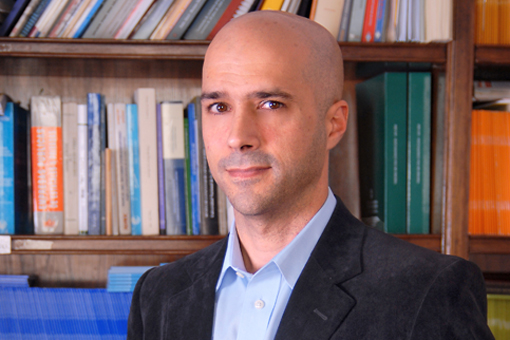Álvaro Herrero could have pursued any career of his choice. His impressive academic credentials include a law degree from the Universidad Nacional de la Plata in his native Argentina, an MA in Latin American studies from Georgetown and a PhD in political science from Oxford. But in 2005, he opted instead for a job as a researcher with the Asociación por los Derechos Civiles (ADC).
He hasn’t regretted it. “I’ve always been preoccupied by the breaks in democracy in the region and how they’ve affected human rights and the judiciary,” says Herrero, 41. He has risen to become executive director of the organization, where he has helped the ADC become a driving force for judicial reform in Argentina.
Founded in 1995, ADC emerged at a critical time: most rights groups in Argentina were focused on crimes against humanity committed during the 1976–1983 military dictatorship, and there were no organizations working nationally on themes related to civil rights, such as freedom from discrimination and freedom of expression.
Herrero believes that Argentina’s dictatorship-era abuses and its current civil rights challenges are intertwined. “In Latin America, as a result of the breakdown of democracy and the human rights violations, today—at least in Argentina—there is still a lot of work to do in defense of human rights, freedom of expression, anti-discrimination, access to public information, and judicial independence,” he says.
After becoming executive director in 2009, Herrero oversaw ADC’s growing focus on LGBT (lesbian, gay, bisexual and transgender) rights, sexual and reproductive health, and the rights of prisoners. ADC has also been instrumental in promoting greater government transparency and public access to information. Argentina’s military regime reinforced a culture of government secrecy that has remained long after the country’s return to democracy, says Herrero. “Both government officials and the average citizen believe that the information that the government has is secret […] for us, it was a big challenge to make a clear case with citizens that they have a right,” he adds.
This past December, the ADC won what Herrero calls “the most important legal case in our history” when Argentina’s Supreme Court ruled that the Instituto Nacional de Servicios Sociales para Jubilados y Pensionados (National Institute of Social Services for Retirees and Pensioners), a public corporation that provides services to the elderly, was required to divulge how it spent its public advertising budget. In doing so, the court demonstrated that all Argentine public entities—as well as private corporations that exercise public powers—are required to disclose how their funding is allocated. The court had never before given such a broad recognition of Argentines’ constitutional right to request and receive access to public information.
Meanwhile, the ADC is still trying to educate Argentines about its work. “We have no political affiliation but a lot of people confuse us with an opposition group,” Herrero says. “We are an independent NGO that defends civil rights.”
Though it has already built a nationwide presence, the ADC is working with international organizations like Grupo de Información de Reproducción Elegida (Information Group on Reproductive Choice) and the Organización Ombudsgay in Mexico, and regional networks like the Alianza Regional por la Libre Expresión e Información (Regional Alliance for Free Expression and Information), to make a bigger impact. This is a natural role for Herrero, who has worked as a consultant for international NGOs in 15 countries.
“The strategy to defend rights has changed a lot, and the discussions are no longer local,” Herrero says. The ADC, which is largely supported by international foundations like the Ford Foundation and the Open Society Foundations, has had to stretch its resources to operate in cities like Washington DC and Geneva, and to testify before regional human rights bodies like the Inter-American Commission on Human Rights.
“In the next few years, we’ll be pursuing themes like privacy, intelligence and surveillance in Latin America, and we’ll be increasing our international work,” Herrero says. “Today, the defense of rights is global.”





